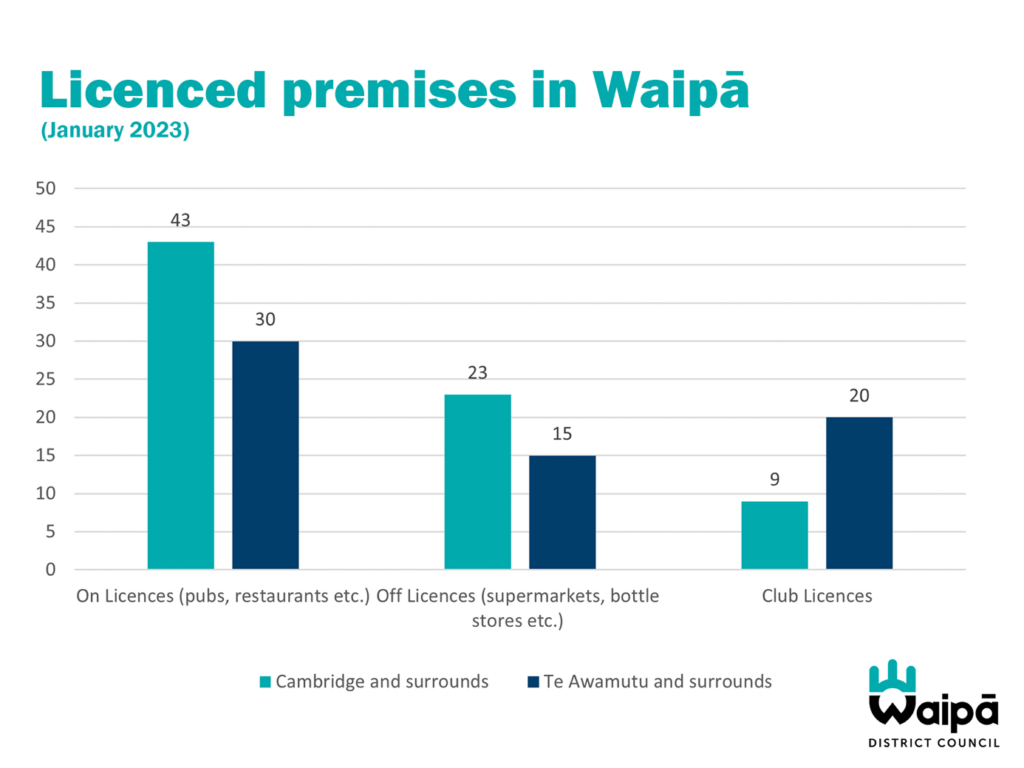

Waipā’s elected members have been advised to make changes to the district’s alcohol policy to help reduce alcohol-related harm in the district.
Councils with a Local Alcohol Policy must review it every six years alongside the police, alcohol licensing inspectors and Medical Officers of Health.
All three regulatory agencies have provided comment to council, advising councillors that Waipā’s policy was no longer fit for purpose and could be improved.
Police statistics from 2013 (the most recent available) noted alcohol was the most common drug used to assist sexual assault; that alcohol was a common factor in violent offences and that a large proportion of family violence incidents involved alcohol or other drugs.
A staff report cited research showing alcohol-related harm impacted most on lower socio-economic groups and ethnic minorities including Māori and Pasifika communities.
Research shows three areas help reduce alcohol-related harm: increasing the price of alcohol, legislating around alcohol advertising and reducing alcohol availability. Councils can only try to reduce alcohol availability by setting rules to manage the location and number of licenced premises, hours of operation and one-way door restrictions.
As at January 2023, there were 140 licensed premises in the Waipā district. Of those, 73 held an on-licence (pubs, restaurants etc), 38 held an off-licence (supermarkets, bottle stores etc) and 29 clubs had licences which allowed alcohol to be sold to club members, their guests or authorised visitors. Nationally, it is estimated that most alcohol spending is at off-licenced premises.
At a final open workshop today, staff ran through a raft of potential policy changes suggested by police, licensing inspectors and Medical Officers of Health which would restrict alcohol availability.
No decisions were made, noting any proposed changes to the existing policy must be subject to a public process with public submissions invited. A decision on whether or not to formally propose changes to the policy will be made in the next couple of months.









